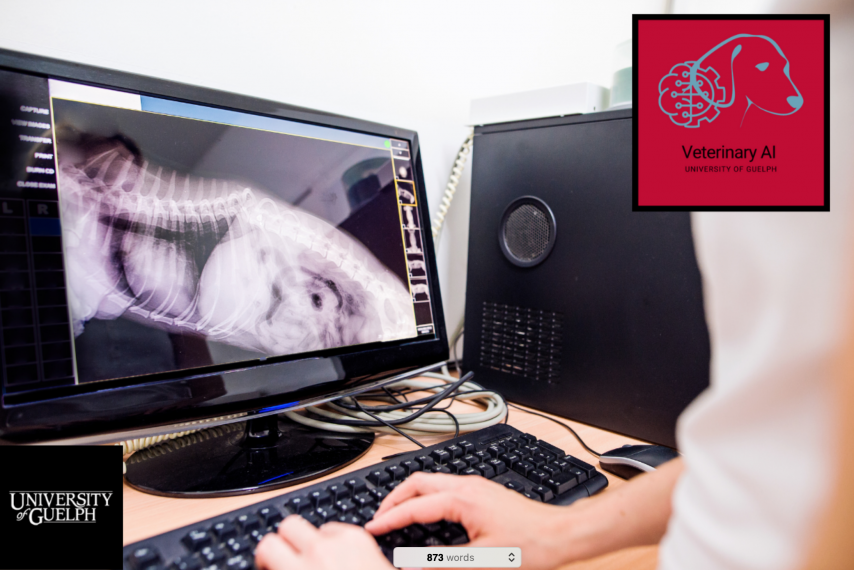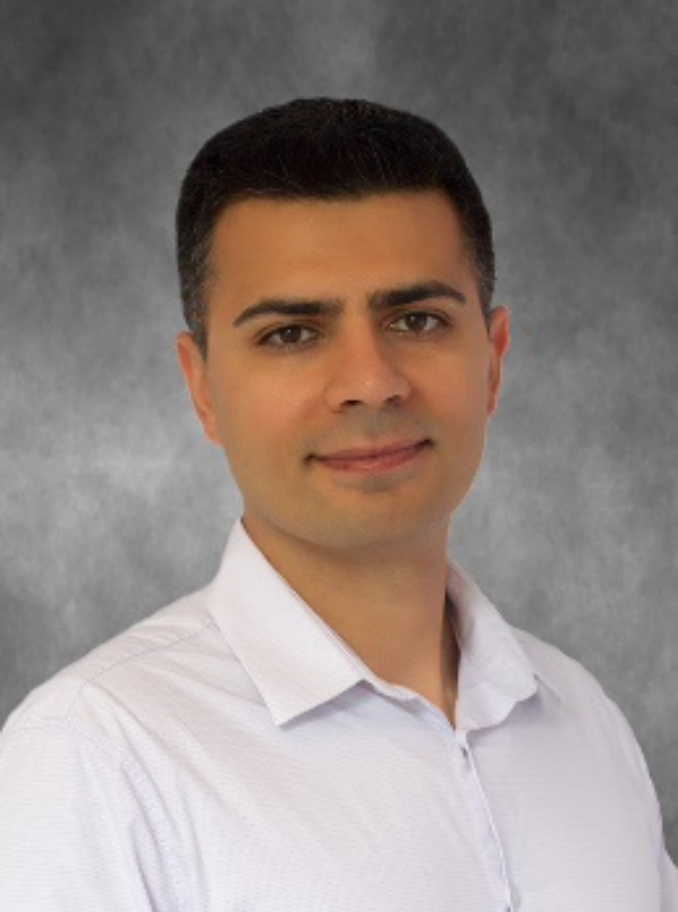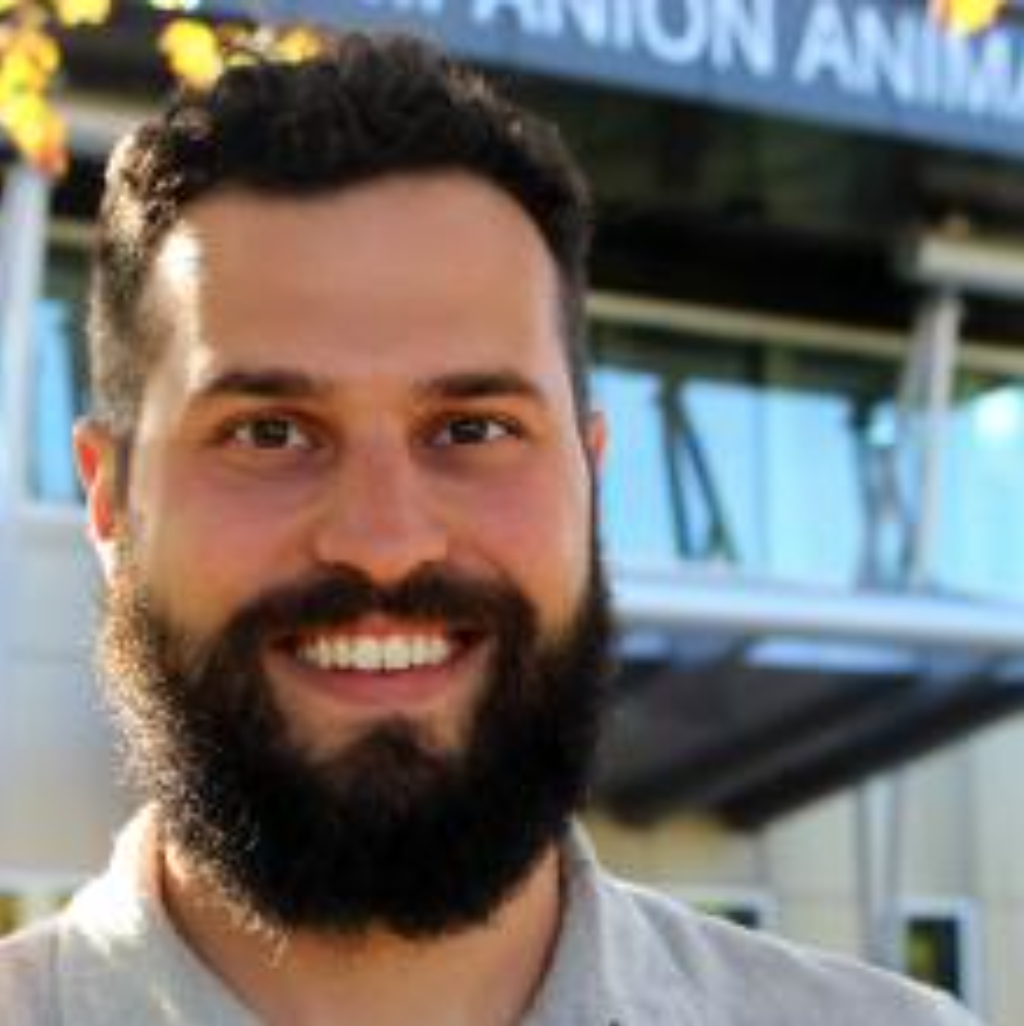Veterinary AI lab a pioneer research center in developing new diagnostic solutions.


Assistant Professor,
School of Engineering
I started my faculty position at SOE in 2018 with a clear research objective: to conduct innovative research that makes an impact on society. The first and foremost important step was to make a strong collaborative research network which is the pillar of any successful research team. I decided to take this step firmly and approach top-notched local and global researchers. At the University of Guelph, junior faculty members are supported with great mentoring programs, one of which is the LRIC Mentorship Program. I am very happy that despite my hectic teaching schedule, I participated in the 2020 LRIC Mentorship Program, through which I learnt about effective working relationships between faculties and industry, and defining sound research questions rooted in industry needs. Their training sessions exposed me to an invaluable network of local industry partners and senior researchers in multidisciplinary areas spanning from veterinary medicine to livestock industry and computer science. Without LRIC Mentorship Program, it would take me years to connect with such expert local practitioners in both industry and academia sectors. Knowing the research gap and demanding problems in the industry, I tailored my original research ideas to be more meaningful for stakeholders and society in broad. I contacted Drs. Ukwatta and Appleby, who are emerging stars in their field of research with their innovative solutions to research questions. We founded Veterinary AI lab in 2020 with the mission to improve the healthcare services provided to animals and their owners. Our research spectrum is quite broad, encompassing aspects of disease diagnosis and monitoring, injury prevention, and developing clinical wellness programs. These programs are accomplished via a network of collaborators in engineering and veterinary clinics both locally in SOE and OVC, nationally, and internationally. We employ innovative approaches such as AI and machine learning methods for clinical practices. The multidisciplinary nature of Veterinary AI lab allows us to approach complex untouched problems that require exotic solutions. Our brainstorming meetings result in cutting-edge research ideas that are appealing for scientific explorations and marketing potentials.
This past year we gained valuable insight on how to improve canine radiograph quality and increase the diagnostic yield of images aquired in practice. We approached our industry network to find an industry partner to help us commercialize our ideas. Our strong vision of success, knowledgeable team members, and innovative solutions convinced grant agencies to support our research proposals. Our projects are supported by multiple funding agencies, including the NSERC, NRC, and CARE-AI. The Veterinary AI lab now has two PhD, one MSc, and one undergraduate student and is growing fast. We are working tirelessly with our partners towards developing new solutions to the problems and turn the Veterinary AI lab into a pioneer research center with a worldwide reputation.

Assistant Professor,
School of Engineering
Currently, I am an Assistant Professor in Biomedical Engineering at the School of Engineering and an adjunct Professor in Systems and Computer Engineering at Carleton University. Prior to that, I was a postdoctoral fellow at University of Toronto and Johns Hopkins University. My research interests are in medical image analysis specializing in developing new algorithms by implementing latest advances in artificial intelligence into automated interpretation of medical images. During the past decade, I have developed novel algorithms for image segmentation, some of which have been translated to clinic. So far, I have published 33 peer-reviewed articles and have four under review. Including articles in IEEE Transactions of Medical Imaging and Medical Image Analysis, two top journals in the field of medical image analysis. I have also published 46 long conference papers, including MICCAI, the leading conference in my field with a review process (acceptance ~20-30%) similar to a journal. My papers have been cited 1021 times with an H-index of 17. I have been invited to deliver seminars at several national and international venues. I have received numerous research awards, including Faculty Research Award (Carleton) and Johns Hopkins Centennial Fellowship, and have secured competitive research grants through several government agencies and industry.

Assistant Professor,
Department of Clinical Studies,
Ontario Veterinary College
Artificial intelligence is the next frontier in veterinary diagnostic imaging. There is an opportunity to improve veterinary practice through the use of technology and I am excited to join Drs. Komeili and Ukwatta to contribute to these advancements. For me it is important to purposefully and mindfully consider the uses of AI and apply its application to drive meaningful change for veterinary medicine. Improving radiographic quality and making radiographic acquisition easier is primary need in the veterinary community and our research is working towards this goal. This will improve patient outcomes, reduce costs and reduce radiation exposure for veterinary workers. We look forward to exploring more use cases to apply AI to veterinary diagnostic imaging.
 Intelius AI is proud to be partner with the Veterinary AI lab at the the University of Guelph to build a Machine Learning-based quality control of canine thoracic radiographs tool. The team of researchers at the Veterinary AI lab will help Intelius to innovate cutting-edge technology that assist taking more accurate canine thoracic radiographs and reducing patient radiation. Intelius AI will collaborate with the university team to build the minimum viable product by 2023. Intelius AI will continue to commercialize the product to its full functionality and make it accessible to veterinarian clinics worldwide.
Intelius AI is proud to be partner with the Veterinary AI lab at the the University of Guelph to build a Machine Learning-based quality control of canine thoracic radiographs tool. The team of researchers at the Veterinary AI lab will help Intelius to innovate cutting-edge technology that assist taking more accurate canine thoracic radiographs and reducing patient radiation. Intelius AI will collaborate with the university team to build the minimum viable product by 2023. Intelius AI will continue to commercialize the product to its full functionality and make it accessible to veterinarian clinics worldwide.